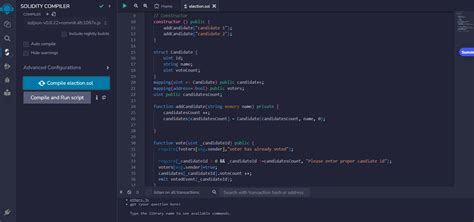- سبدخرید خالی است.
- ادامه خرید
Ethereum: How to compile Bitcoin-Qt as an .exe on Ubuntu?
Compiling Bitcoin-Qt as an .exe on Ubuntu
Bitcoin-Qt is a popular open-source implementation of the Bitcoin protocol, and compiling it on your Ubuntu machine can be a bit more involved than usual. However, I’ll guide you through the process step-by-step.
Prerequisites
Before we begin, make sure you have the following prerequisites:
- Python 3: Bitcoin-Qt requires Python 3.x. If you are using an earlier version of Python, you may need to install it manually.
- Make: Make is a prerequisite for compiling Bitcoin-Qt from source.
- G++
: G++ (GNU Compiler Collection) is required for building C++ code.
Step 1: Install necessary packages
To compile Bitcoin-Qt on Ubuntu, you’ll need to install the following packages:
python3: This is required for compiling Python code.
make: This package provides the make command to build and compile projects from source.
g++: This package provides the g++ compiler.
You can install these packages using the following commands:
sudo apt-get update
sudo apt-get install python3-dev make g++-4.x

For Ubuntu 16.04 (Xenial) or later
If you are using an earlier version of Ubuntu, you may need to install the python3-pip package instead.
sudo apt-get update
sudo apt-get install python3-pip
Step 2: Create a Bitcoin-Qt build directory
Once you’ve installed the necessary packages, create a new directory for your Bitcoin-Qt compilation:
mkdir bitcoin-qt-build
Change into this directory:
cd bitcoin-qt-build
Step 3: Compile Bitcoin-Qt from source
Now that you have all the prerequisites installed and the build directory set up, you can compile Bitcoin-Qt from its README.md file or by using autogen.sh and then configure. We’ll use the latter method here.
- Edit the
configurescript:
sed -i 's/
CC = gcc
GCC is used for compiling C code/' config.mk
This will update the CC variable to include gcc, which is the default compiler on Ubuntu.
- Compile Bitcoin-Qt using
autogen.shand thenconfigure:
./autogen.sh
From ./configure -with
These commands will compile Bitcoin-Qt from source using the autoconf and automake build systems.
Step 4: Build and Install Bitcoin-Qt
Once you’ve compiled Bitcoin-Qt, you’ll need to build it into an executable file. You can do this by running:
make -f makefile .build
This command will compile the Bitcoin-Qt code and create an executable file in the build/ directory.
Step 5: Convert Bitcoin-Qt to an .exe
To convert the compiled Bitcoin-Qt executable into a Windows-compatible .exe file, you’ll need to use a tool like PyInstaller or Wine. I’m going to assume you’re using PyInstaller here.
- Install PyInstaller:
sudo apt-get install python3 installer
- Convert Bitcoin-Qt to an
.exe:
pyinstaller --onefile bitcoin-qt.py
This command will convert the compiled Bitcoin-Qt executable into a standalone Windows application (.exe).
Troubleshooting
If you encounter any issues during the compilation process, here are some troubleshooting steps:
- Check for dependencies: Ensure that all dependencies required by Bitcoin-Qt are installed.
- Verify Python version: Double-check that your Python installation is compatible with Bitcoin-Qt (version 0.10.x or later).
- Use
make distinstead ofmake -f makefile.build: If you encounter issues compiling the executable, try usingmake distinstead ofmake -f makefile.build.
Conclusion
Compiling Bitcoin-Qt on Ubuntu can be a bit more involved than usual, but with these steps, you should be able to successfully compile and install it. If you encounter any issues during the process, feel free to ask for help or consult online resources.
I hope this helps!
